The B2B industry, washed over by the surge of ChatGPT, is in search of new opportunities amidst the turmoil.
At such a historic moment, the onset of the digital wave brought by AI is becoming apparent, and the release of government programmatic documents has laid the foundation for the upgrade and high-quality development of China’s digital economy. The “Opinions on Building Data Basic Systems to Better Play the Role of Data Elements” (referred to as “Data Twenty Articles”) issued in December 2022, accelerates the construction of a data basic system framework, proposing specific requirements from aspects such as data property rights system, data element circulation and transaction system, data element income distribution system, and data element governance system.
Choosing the high ground, on July 13th, the 2023 | B2B Digital Growth Summit organized by JINGdigital was held in Shanghai. Themed “Anticipating AI · The Future of Marketing,” the summit featured 18 heavyweight guests from companies such as Microsoft, JLL, Philips Healthcare, NetEase Fuxi, and Gore, who delivered dense knowledge outputs in both halves of the event. Over 400 B2B marketers attended the conference, and JINGdigital, together with partners like Polyv and Huodongxing, attracted tens of thousands of viewers to the online live broadcast of the summit.
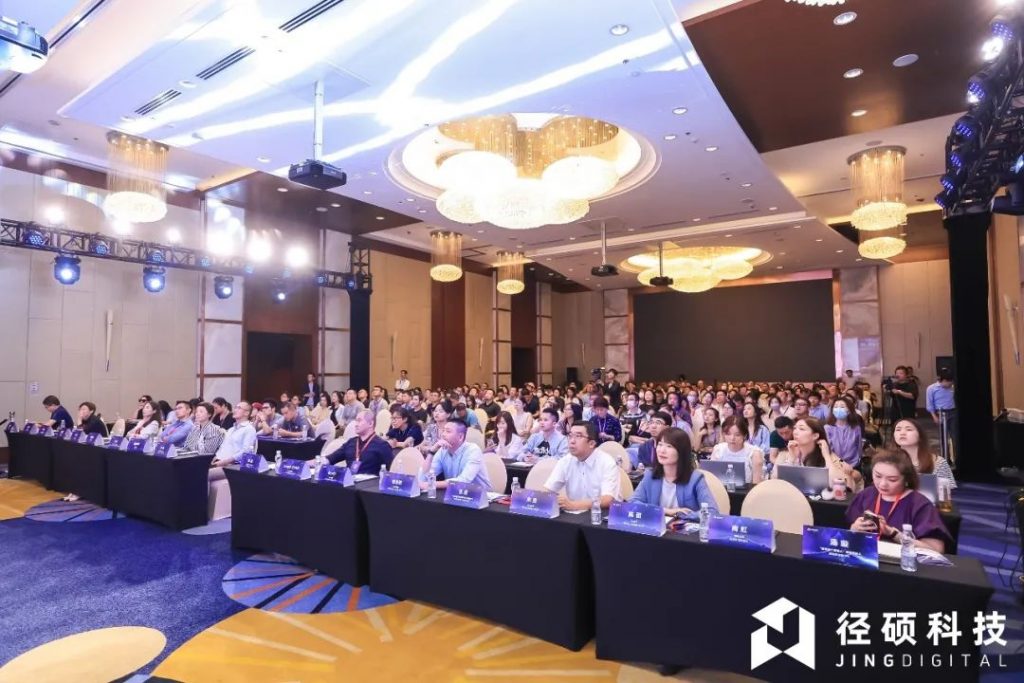
Image: 2023 | B2B Digital Growth Summit held in Shanghai
Highlights of the Summit:
Steady Progress: AI Enhances B2B Marketing Productivity, Three Essential Conditions Indispensable
Mr. Hong Kai, co-founder and CEO of JINGdigital, got straight to the point in his opening speech at the summit, stating, “We are at the beginning of a new decade-long cycle initiated by generative AI, which is what everyone expects from AI. We have already seen enterprises build a large ecosystem around large models to truly transform technology into productivity. So, what does this mean for us B2B marketers?”
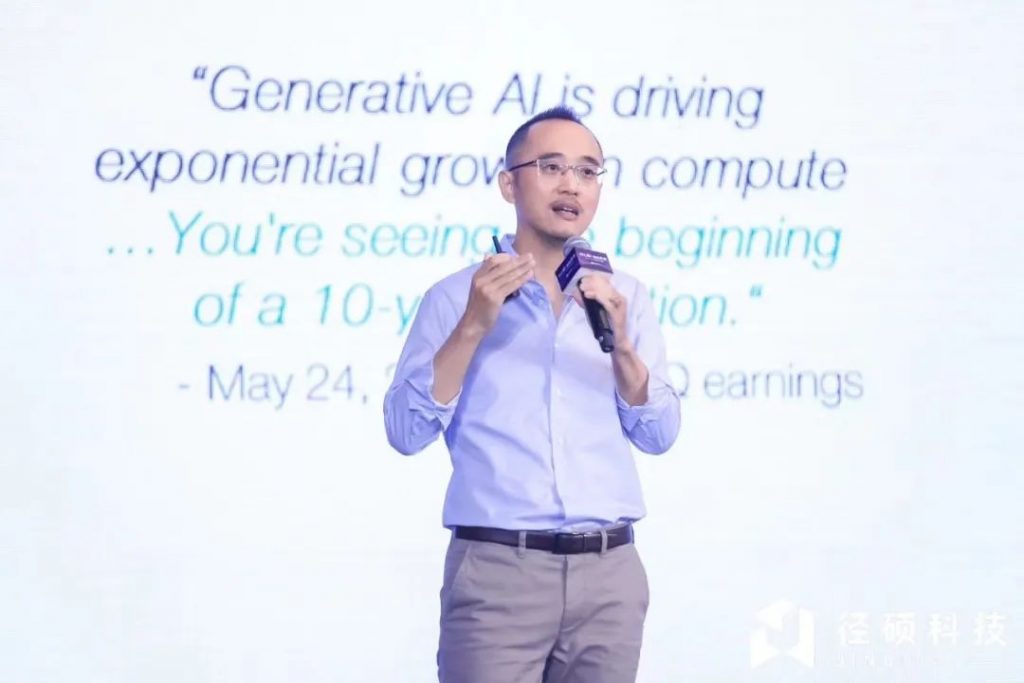
Image: Hong Kai, co-founder and CEO of Jingshuo Technology
For AI to be transformed into productivity, into a stage where B2B enterprises can apply it practically, three essential conditions are needed, “At the infrastructure level, there must be computing power and models; at the application level, there must be customers willing to try; and at the data level, there must be a massive amount of data. When we look at the B2B marketing track from these three dimensions, we find ourselves in a particularly fortunate position, because in B2B marketing, we have everything. We have customers who are willing to try, we have data, because in the entire process of converting leads to customers, a massive amount of data is generated. At the same time, we have scenarios.”
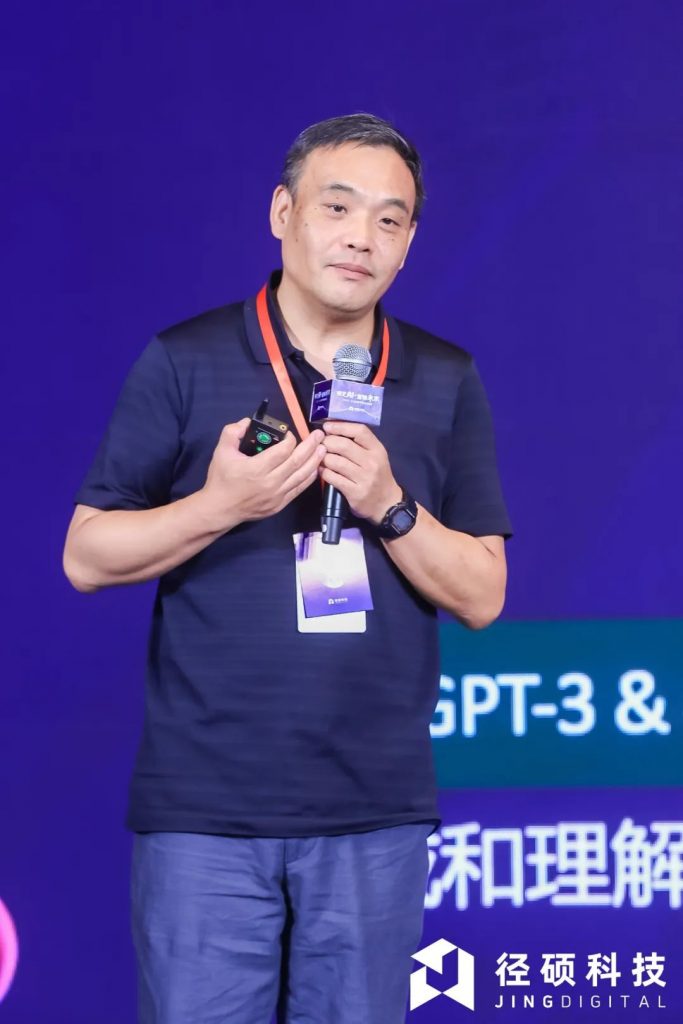
Image: Zhu Yiming, Operations Director of Microsoft Innovation Alliance
Mr. Zhu Yiming, Director of Operations for Microsoft’s Innovation Alliance, shared a similar view on artificial intelligence, pointing out humorously yet profoundly, “The three main factors of artificial intelligence technology are algorithms, data, and computing power. With breakthroughs in these three areas, artificial intelligence has developed. The last wave of deep learning saw breakthroughs in algorithms, with the development of big data and cloud computing technologies providing support for the processing of massive data and complex model training, leading to breakthroughs and large-scale applications in fields such as natural language processing, image recognition, voice recognition, and face recognition.
Then, with the recent development of large language models, it essentially breaks through on these three points, but on a larger scale. The development of large language models has not yet reached a state that we cannot understand, especially with Microsoft’s strategy of “responsible artificial intelligence” strictly controlling applications including Azure Open AI and other AI technologies. So, jokingly, everyone doesn’t have to worry too much about AI developing to the point where we ‘can’t unplug it in time’ (laughs).”
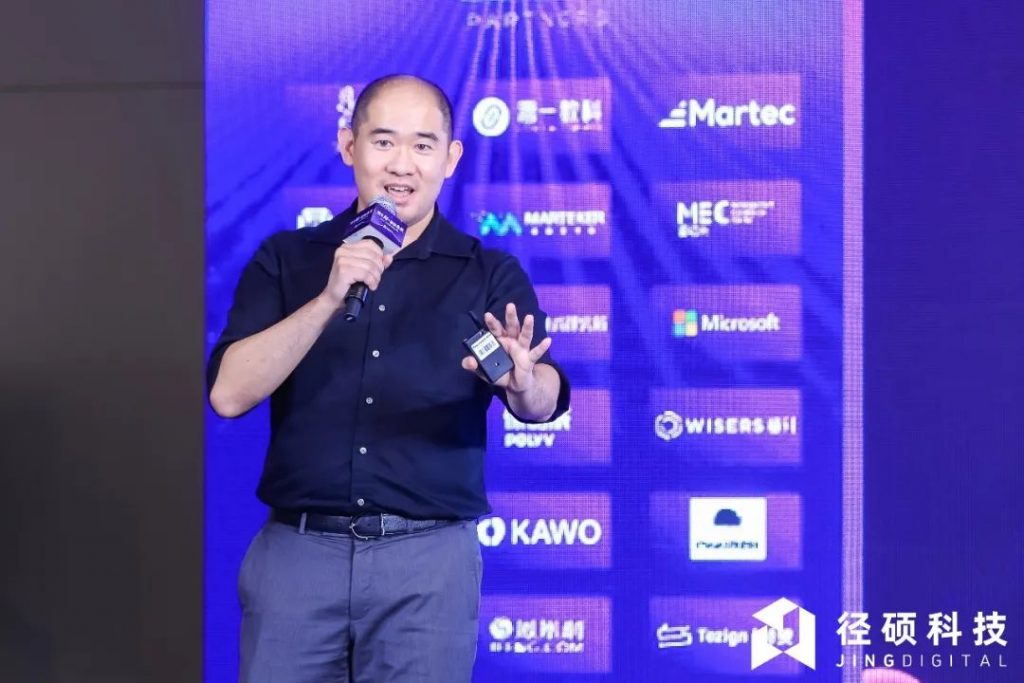
Image: David Chan, Digital Marketing Director for JLL Greater China at JLL
David Chan, Digital Marketing Director of JLL Greater China, starting from the topic of “AI Empowering Leadership,” believes that AI, as a powerful tool, can enhance everyone’s leadership in four aspects: “First, AI can improve our efficiency at work; second, AI can help us enhance decision-making analysis; third, AI can provide insights; fourth, AI empowers training.” In the efficiency at work scenario, David showed the application practices of Humata, Instatext, Perplexity AI, and Notion AI. In terms of empowering insight, ChatGPT’s analysis of advertising data demonstrated AI’s powerful analytical and insightful capabilities.
Amid Change, Seek Constancy:
Exciting Roundtable Discussions, Discussing Industry Trends in the AI Era
The “Medical Special Debate” gathering top medical enterprises and the “B2B Roundtable Forum” comprising CEOs brought the summit’s atmosphere to a “climax.”
Is content important or algorithm important in the medical specialty AIGC era?
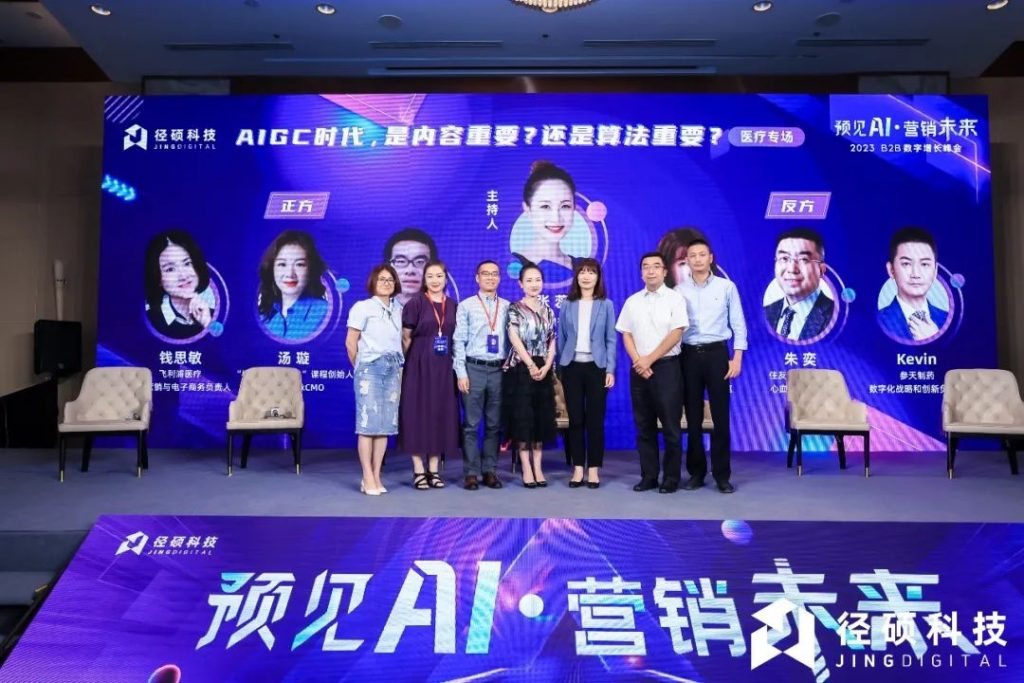
Image: Strange Talk about Medical Specialization – In the AIGC Era, Is Content Important or Algorithm Important?
The medical special debate was hosted by Zhang Rui, founder of Jiuri Ruizhi Consulting Co., Ltd. and an expert in digital transformation in the healthcare industry. The debate featured prominent figures such as Qian Simin, Head of Digital Marketing and E-commerce at Philips Healthcare; Zhou Hong, Vice President of Information Technology at Liantuo Bio; Chen Tian, Director of Digital and Innovative Marketing at Panshengzi; Zhu Yi, Cardiovascular Products Director at Sumitomo Pharma; Kevin, Head of Digital Strategy and Innovation at Santen Pharmaceutical; and Tang Xuan, founder of the “Be a Marketer” course and former CMO of Fosun Anmai, forming teams for and against the motion.
During a spirited debate around the question, “In the AIGC era, is content or algorithm more important?”, parties discussed the production of medical content by GPT and its impact on medical positions. Digital transformation expert in the medical industry, Zhang Rui, suggested that GPT introduces a tripartite relationship among doctors, patients, and itself, acting not as a replacement but as an “assistant” facilitating tedious tasks like paperwork and medical records, thereby potentially enhancing productivity.
Qian Simin, the head of Digital Marketing and E-commerce at Philips Healthcare, highlighted the ethical considerations of discussing AIGC in the healthcare industry. She pointed out the issue of data quality in the era of smart healthcare, noting the challenge of discussing big data when structured data is lacking. Moreover, she emphasized that even if these technological advancements are available, their application in healthcare comes with ethical concerns.
Chen Tian, the Director of Digital and Innovative Marketing at PanShengZi, shared practical examples of AIGC’s feasibility in the healthcare sector. She outlined scenarios where AIGC is already making an impact:
Automated Precision Marketing: Algorithms are being used for precise marketing, offering personalized services to doctors and patients.
Research and Development: AIGC is applicable in R&D, including medical discoveries, new drug development, and genomics, all of which are closely related to big data.
General Medical Industry Models: Some companies are developing universal models for the healthcare industry, showcasing the broad applicability of AIGC technologies.
These insights into AIGC’s role in healthcare underline the potential and challenges of integrating advanced AI technologies in sensitive and ethically complex fields. (Further detailed shares from the unique perspectives of these healthcare debate participants will be made available through JINGdigital’s official channels.)
CEO Roundtable – When B2B meets AI, what sparks will the two ignite?
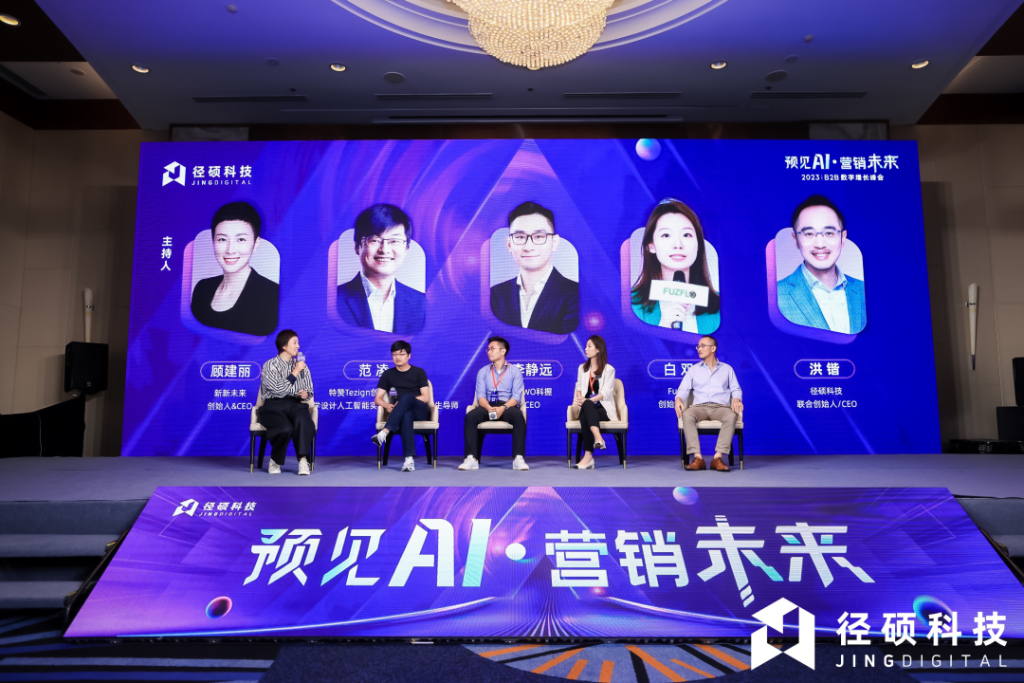
Figure: Roundtable Faction – When B2B encounters AI, what sparks will the two ignite?
Beyond the debate session, the “Roundtable Session” of this summit was a gathering of CEOs, featuring special guests including Mr. Fan Ling, founder and CEO of Tezign and Director of the Artificial Intelligence Design Laboratory at Tongji University, as well as a doctoral supervisor; Mr. Li Jingyuan, CEO of KAWO; Ms. Gu Jianli, founder and CEO of Xinxin Future; Ms. Bai Shuang, founder and CEO of FuzFlo; together with Mr. Hong Kai, co-founder and CEO of JINGdigital, discussing B2B topics and exploring their perspectives on the impact of the current AI wave on industry development.
Amid the cacophony of internet noise and the anxiety that AI brings to businesses, Mr. Fan Ling incisively pointed out, “First and foremost, I believe that the scenarios of businesses are extremely valuable, and AI merely provides new solutions to these scenarios, ultimately aiming to resolve the specific scenario problem. Secondly, the discussion about AI often quickly shifts to the dimension of cost reduction and efficiency improvement, which I approach with caution. Looking at the development of all technologies historically, there is always a reversal, from solving a fixed problem more efficiently to discovering new spaces. I still have a strong belief in human potential; I think imagination has never been more important than it is now.” (More splendid shares from the roundtable guests will be shared through JINGdigital’s official channels.)
Expanding Horizons:
JINGdigital’s V4 New Platform Launches, Aiding B2B Businesses from Traffic to Business Opportunity Closure
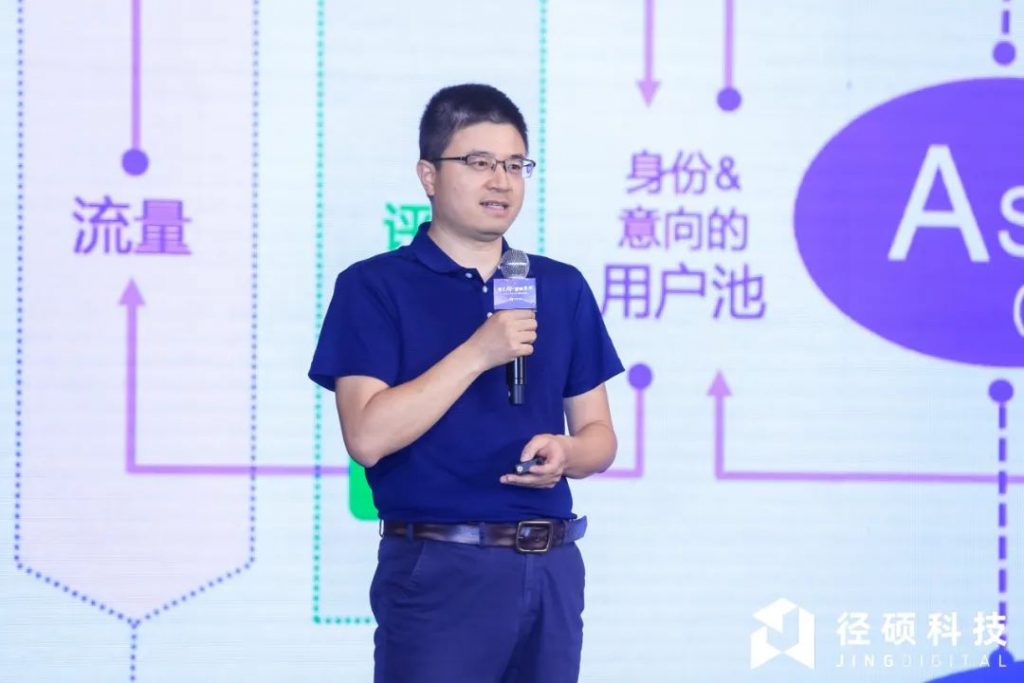
Image: Liu Quan, CPO of Jingshuo Technology
In 2022, China’s digital economy reached a scale of 50.2 trillion yuan, growing by 10.3% year-on-year, and has been significantly outpacing the GDP growth rate for 11 consecutive years. Amid this digital economy wave, Mr. Liu Quan, CPO of JINGdigital, showcased the newly launched V4 platform at the summit. With clear explanations and live demos, Mr. Liu presented the data-driven process from traffic to business opportunities for B2B enterprises to both online and offline audiences.
“Marketing assets essentially constitute a lifecycle, traversing through numerous stages, but the most critical phase is transforming traffic into identifiable and interested users, then into a digital, marketable MQL, followed by integration into CRM, and ultimately becoming a business opportunity. Around these four lifecycles, we have constructed a complete digital marketing system. It is divided into two parts: the frontend, from traffic to user, and the backend, from initial leads to business opportunities. The third part revolves around today’s theme of AIGC in the nurturing phase’s practical application,” shared Mr. Liu Quan.
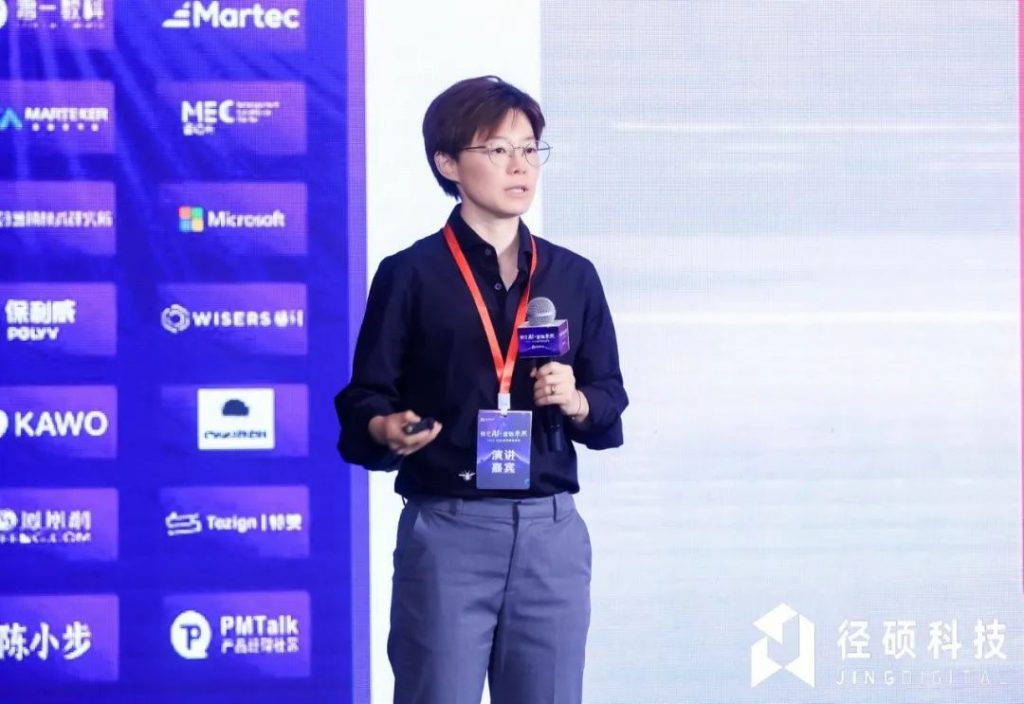
Image: Cai Wei, Asia Pacific Director of Gore’s Digital Strategy for Industrial Trade
Mr. Cai Lei, the Digital Strategy Director for Asia Pacific at Gore Industrial Products Trade, shared examples of AI applications in multi-channel marketing scenarios: “In one scenario at an exhibition, we needed to distribute surveys to collect feedback. Recently, we used AI-generated human voices to make phone calls for this purpose, using a voice from a professional engineer. Compared to previous survey methods, this approach significantly improved both the answer and response rates.”
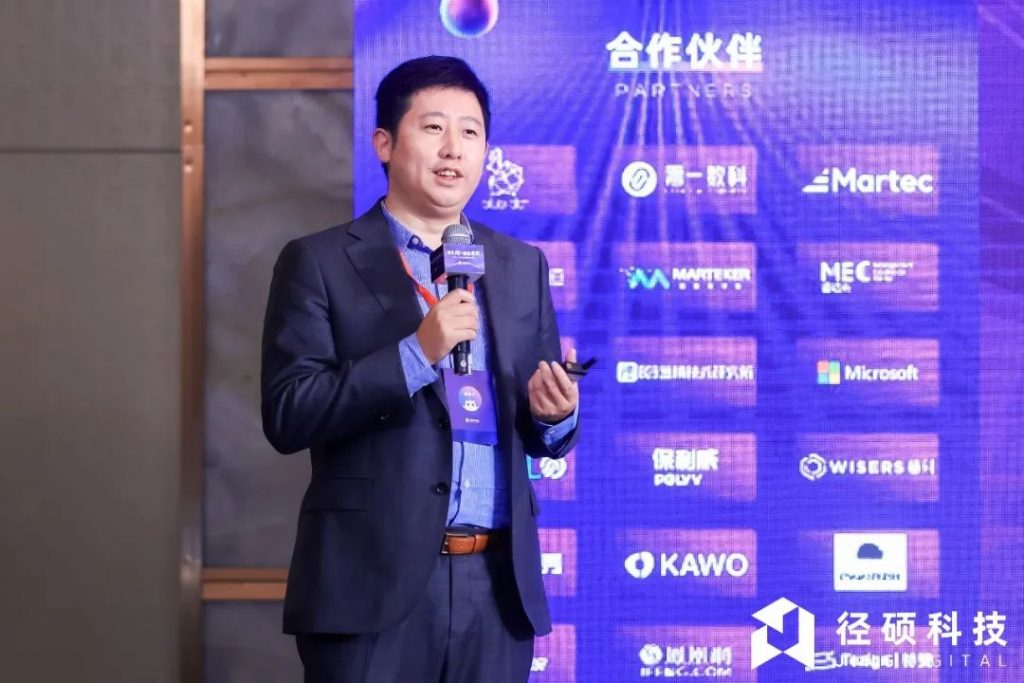
Image: Deng Meng, Head of Marketing Department at NetEase Fuxi
Mr. Deng Meng, the head of the marketing department at NetEase Fuxi Lab, shared some of the lab’s achievements: “Currently, the gaming industry is one of the scenarios where AI can be easily implemented. NetEase Fuxi Lab began exploring the application of AI technology in gaming and other areas as early as 2017. In gaming scenarios, we continuously break through AI technology’s innovation and practice in aspects such as environment, NPC, plot, combat, and social interaction.
Accumulating data, refining algorithm models, and continuously promoting AI technology to benefit more fields are all ongoing efforts by the NetEase Fuxi team. Moreover, we adhere to the AOP programming philosophy: enhancing AI effectiveness through a combination of human feedback and reinforcement learning, thus achieving more efficient evolutionary learning in twin environments. Simply put, it means repurposing our five years of AI accumulation experience in the gaming industry for other sectors.”
In the current surge of ChatGPT development, we can indeed revel in a “digital” future without human intervention. However, as mentioned by the guests at this summit regarding “technological development and ethical challenges,” revisiting the 1980 “Moravec’s Paradox”: the uniquely human high-order cognitive abilities require very little computational effort, such as reasoning, whereas unconscious skills and intuition demand enormous computational resources. Facing AI, the future of marketing may look bright, but the future of marketers is tied to the present transformation. Joining hands with JINGdigital, we support B2B enterprises in their digital transformation.
For more exciting shares from the debate and roundtable discussions, stay tuned to JINGdigital’s official channels, where we will share more content with everyone in the future.
